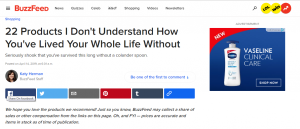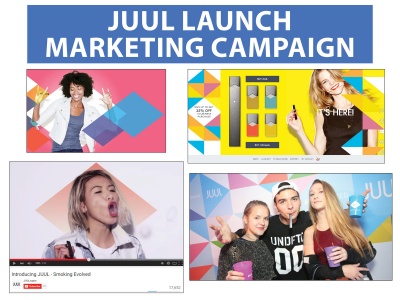Difference between revisions of "Advertising ethics online"
(→Native Advertisements) |
(→Unwanted Exposure) |
||
| Line 46: | Line 46: | ||
===Unwanted Exposure=== | ===Unwanted Exposure=== | ||
| − | + | ====Exposure of the Common Man==== | |
Generating user-targeted advertisements carries the risk of the person behind the screen not being the intended user, leading to serious privacy concerns. Many sites can track user activity by IP address which allow them to multiple people on a single device to retrieve variety of ads. Additionally, the tech industry's trend towards an oligopoly has caused similar problems. When a user ask Google Home a question this can lead to pivotal information that is associated with their Google account and can lead to targeted ads on any device upon their Google account. Likewise, Facebook's purchase of Instagram has provided them access to reach over two of the four most popular social media platforms in the world, and information from either account can cross over. This poses as a threat of misinformation when using targeted ads as it can have extensive consequences. | Generating user-targeted advertisements carries the risk of the person behind the screen not being the intended user, leading to serious privacy concerns. Many sites can track user activity by IP address which allow them to multiple people on a single device to retrieve variety of ads. Additionally, the tech industry's trend towards an oligopoly has caused similar problems. When a user ask Google Home a question this can lead to pivotal information that is associated with their Google account and can lead to targeted ads on any device upon their Google account. Likewise, Facebook's purchase of Instagram has provided them access to reach over two of the four most popular social media platforms in the world, and information from either account can cross over. This poses as a threat of misinformation when using targeted ads as it can have extensive consequences. | ||
| − | The most notorious case occurred in 2011 when a family wasn't aware of their teen daughter's pregnancy until they received a Target mail coupon catalog full of baby items. The Forbes report on the incident shares that Target collects their purchase history information and combines it with demographic information which they buy from 3rd parties to create profiles to target each customer."<ref>Hill, Kashmir. "How Target Figured Out A Teen Girl Was Pregnant Before Her Father Did." Forbes. 16 Feb 2012.https://www.forbes.com/sites/kashmirhill/2012/02/16/how-target-figured-out-a-teen-girl-was-pregnant-before-her-father-did/#1912848b6668</ref> This incident illustrates the breach of privacy and unwanted exposure for consumers when companies use targeted advertisements. | + | The most notorious case occurred in 2011 when a family wasn't aware of their teen daughter's pregnancy until they received a Target mail coupon catalog full of baby items. The Forbes report on the incident shares that Target collects their purchase history information and combines it with demographic information which they buy from 3rd parties to create profiles to target each customer."<ref>Hill, Kashmir. "How Target Figured Out A Teen Girl Was Pregnant Before Her Father Did." Forbes. 16 Feb 2012.https://www.forbes.com/sites/kashmirhill/2012/02/16/how-target-figured-out-a-teen-girl-was-pregnant-before-her-father-did/#1912848b6668</ref> This incident illustrates the breach of privacy and unwanted exposure for consumers when companies use targeted advertisements. |
| + | |||
| + | ====Ad Safety, A Different Ethical Concern==== | ||
| + | In certain instances, the advertising industry experiences unwanted exposure. Although most people experience targeted ads, lots of advertisements are misplaced. An ethical concern, [https://en.wikipedia.org/wiki/Ad_fraud#Type_of_Fraud Ad fraud] is a multi-billion dollar crime industry. Irresponsibly placed by publishers, advertisements can end up on websites where no user ever travels (just bots), or on sites that do not align with a brand/advertiser's products or values. | ||
===How much information is on file?=== | ===How much information is on file?=== | ||
Revision as of 20:35, 14 April 2019
Ethics of online advertisements are issues that have have seen a steady increase in the 21st century as a result of online promotions advertising becoming more common. As a result of the rapid shift that businesses and large corporations have made towards digital marketing in the 21st century, marketers have become increasingly scrutinized for their decisions in advertising their products. This has led to unforeseen changes in human vulnerability when interacting with advertisements. In other words, consumers are not surprised to see advertisements and their reactions doesn't vary from advertisement to advertisement. In a way, these advertisements has been normalized to the point where marketers can no longer predict the behavior of potential, targeted consumers.
Technological developments in advertising
Technological developments within the last decade have allowed large corporations to access the private data of users, including data such as location, search history, web browser cookies. This information can be used to tailor advertisements to people based on their individual preferences through advancements in machine learning Algorithms and various other techniques. This has led to heightened concerns in regards to many concerns user privacy, data protection, reach, and corporate transparency in advertising.
Targeted advertisements
Over the last decade, advancements in technology has led to more widespread use of targeted advertising. Targeted advertising is advertising carried out to specific demographics such as age, gender, location, purchase, and search history. More detailed personal information has generated concern. If privacy is “freedom from informational interference or intrusion, achieved thanks to a restriction on facts about her that are unknown or unknowable,”[1] then online data collection for commercial purposes violates users' privacy. There is little to no information friction present that prevents targeted advertisements from retrieving information about people and their preferences. Targeted advertisements shed light on the lack of privacy in online interactions and address the whether or not having tailored advertising and information is in the best interest of the consumer.
Targeted advertisements leads to concern for the general population and pre-adulthood vulnerability as they are even more distressing when presented to younger consumers. A study conducted by Masaryk University surveyed 14-to-16-year-olds’ perceived privacy control and the effects of targeted advertisements. It was proven that while “privacy control salience” enabled more probable recognition of targeted advertisements by subjects, the subjects were more likely to be persuaded by the targeted advertisements.[2]
It is proposed that a common solution for the privacy concerns of target advertising is to offer compensation for retrieving personal information. One proposal published in the Computer Networks journal proposes utilizing ad brokers who offer monetary compensation for personal information from consumers piece by piece and are paid for their services by advertisers. [3] Such an exchange fulfills the Nash Equilibrium game theory, in which all players receive the best outcome, and has already come to life via data-payment cafes.[4]
Native Advertisements
In addition to ads becoming more targeted, they have also become harder to distinguish. Native Advertising "is a term used to describe any paid advertising that takes the specific form and appearance of editorial content from the publisher itself."[5] While native advertising is beneficial to advertisers because "they can charge advertisers more for native advertising content than for display ads, which users are likely to avoid or ignore," they are also insidious as consumers might not recognize such content as advertising at all.[5] For news sites, native advertising presents a double edged-sword, as they are only effective if they appear "native," yet making them too native-looking violates journalistic principles of fairness and impartiality. Thus, news sites tend to clearly mark their native advertisements.
The use of native advertising becomes more unprincipled on sites such as BuzzFeed. As a "free, open platform for launching buzz," BuzzFeed is essentially a clout-machine, directing consumer's attention towards the latest trends, while advertising clients pay to craft, direct attention towards, or ride these trends.[6] As a result of this business model, Buzzfeed does delineate advertised content from regular content nearly as much as the NYT. While advertisements on behalf of firms are (somewhat disclosed), advertisements on behalf of celebrities such as the Kardashians and Chrissy Teigen are more nebulous. Given the site's unusual attention to any event in the Kardashian's lives, many consumers have speculated that their is a business relationship between them. However, this remains unconfirmed.
Ethical Issues
Underage vulnerability to advertising
Targeting children with lucrative advertisements is one of the greatest concerns. It's a concern as children lack the ability and control to determine if the advertisements are in their best interests or if they are being persuaded at such ease. [7] A study conducted by the World Advertising Research Center found that when advertisements use implicit persuasion, such as the use of celebrities or subliminal messages and associations are factors in persuading children. Furthermore, cognitive psychology research concluded that after adolescence, and in the phase of "early adulthood” that the brain’s prefrontal regions, which control the response to subliminal stimuli, are fully developed and can recognize and resist subliminal stimuli.[8] Therefore, children can't process the information they are given.In other words, this is a form of brainwashing.
A study conducted by the Federal Trade Commission in 1997 found that 86 percent of the sites listed on a popular children’s website directory collected “personally identifiable information” from children. [9]. In response to constantly rising concerns regarding children’s engagements with advertising, the FTC instituted the Children’s Online Privacy Protection Act (COPPA) in 2000. COPPA requires online advertisers to gain parental consent when advertising to anyone under the age of thirteen. However, targeting children in advertising is still largely unregulated as “only twenty-three percent of ad sites that collect personal information of children under thirteen comply with COPPA.”[10][11]
Transparency
Issues such as underage vulnerability and privacy invasion via targeted advertisements led to more awareness in terms of corporate transparency due to their online advertising. Researchers at Columbia Business School discovered that in a study 80% of the participants are willing to share their shopping and browsing data for customized ads experiences. However, 86% of the participants want to have more control of their data by having the option of opting out of customized ads experiences.[12] It is true that customers has the right to share or not share data collection prior to companies collecting user's data. Companies has the responsibility to inform customers and allow them to choose whether or not if they agree to the advertisement tracking methods used by the companies prior to presenting customized ads.
Unfortunately there hasn't been much progress in regards to legal action to change the corporate transparency methods. In 2011, the American Advertising Federation’s Institute for Advertising Ethics published an outline Principles and Practices for Advertising Ethics to set a baseline on moral objectives in advertising. The central theme lay in transparency, particularly establishing consumer relationships “in a fair, honest, and forthright manner.”[13] These guidelines doesn't enforce so that advertisements don't led to "taking" advantage of users. Unfortunately, it is more so an outline of suggestions. Because of this, it allow the flexibility for companies to create their own privacy and ethical policies, but recent events have led to public scrutiny of such policies.
Unauthorized Purchases
One major ethical issue surrounding personalized ads has come from in-app purchases made by children without parental consent. Numerous mobile and web applications offer various premium upgrades which allows kids to make purchases through their parents' bank accounts without their agreement. This has led to numerous cases of children spending exuberant amounts of money within popular apps, resulting in legal action between parents and the companies who issue these apps.
In January of 2014, Apple Inc. agreed to a settlement with the Federal Trade Commission that required Apple to reimburse $32.5 million dollars in app store and in-app purchases to parents since children made purchases without the parents' consent.[14] The settlement also required that Apple instill further security measures for in-app purchases, including getting explicit parental consent for any purchase in order to ensure informed consent prior to charging customers.
While enforcement of the Federal Trade Commission's ruling led Apple Inc. to take measures such as fingerprint identification and password requirement for all billing purposes, the issue of unauthorized purchases hasn't disappeared. The Federal Trade Commission mandated that Apple establish these changes by March 31, 2014, but a notorious since-deleted twitter rant by rap artist Kanye West made it clear that in-app purchases were still a problem.[15]
Unwanted Exposure
Exposure of the Common Man
Generating user-targeted advertisements carries the risk of the person behind the screen not being the intended user, leading to serious privacy concerns. Many sites can track user activity by IP address which allow them to multiple people on a single device to retrieve variety of ads. Additionally, the tech industry's trend towards an oligopoly has caused similar problems. When a user ask Google Home a question this can lead to pivotal information that is associated with their Google account and can lead to targeted ads on any device upon their Google account. Likewise, Facebook's purchase of Instagram has provided them access to reach over two of the four most popular social media platforms in the world, and information from either account can cross over. This poses as a threat of misinformation when using targeted ads as it can have extensive consequences.
The most notorious case occurred in 2011 when a family wasn't aware of their teen daughter's pregnancy until they received a Target mail coupon catalog full of baby items. The Forbes report on the incident shares that Target collects their purchase history information and combines it with demographic information which they buy from 3rd parties to create profiles to target each customer."[16] This incident illustrates the breach of privacy and unwanted exposure for consumers when companies use targeted advertisements.
Ad Safety, A Different Ethical Concern
In certain instances, the advertising industry experiences unwanted exposure. Although most people experience targeted ads, lots of advertisements are misplaced. An ethical concern, Ad fraud is a multi-billion dollar crime industry. Irresponsibly placed by publishers, advertisements can end up on websites where no user ever travels (just bots), or on sites that do not align with a brand/advertiser's products or values.
How much information is on file?
When users register for sites or browse them, they usually (whether inherently or explicitly) agree to the terms of usage of the sites. However, the vast majority of users don't read Terms and Conditions and thus aren't typically aware of what kind of information they share with corporations. This often leads to public outrage when certain aspects of a privacy or usage agreement leads to corporate practice that users may not like. That was the case in 2015 when Snapchat updated their terms of service, as it allow them to have "the rights to reproduce, modify and republish your photos and save those photos to Snapchat’s servers."[17] This was a giant leap in size compared to how much data users were forfeiting to the company before, and since most users agreed to the terms without reading them it led to widespread outrage and extensive privacy concerns.
This type of problem has increased as more recent events have users questioning how broad a scope the terms can cover. Tech giants such as Facebook and Google are pushing the boundaries of what is normalized in user data collection, and generated controversy by collecting data without consent.
Facebook’s Cambridge Analytica data leak and Google Plus’ API bug are two of the larger scandals that has lead to concerns to the forefront of the legislative agenda. The former breach allowed Cambridge Analytica to access private user data that was used for political persuasion using methods similar to those used in targeted advertising. [18].A bug in an API update left private user data exposed to those who might use the API and led to the shutdown of Google+’s commercial platform. [19]
While not all the collected information may be used for advertising purposes, it has been used for much more extreme practices (as was the case in the Cambridge Analytica scandal) and there's no telling which seemingly obscure data can be utilized to target consumers.
References
- ↑ Floridi, Luciano. The 4th Revolution: How the Infosphere Is Reshaping Human Reality. Oxford University Press, 2016
- ↑ Zarouali, Brahim, et al. "“Everything under control?”: Privacy control salience influences both critical processing and perceived persuasiveness of targeted advertising among adolescents." Cyberpsychology: Journal of Psychosocial Research on Cyberspace 12.1 (2018).
- ↑ Wang, Wei, et al. "A privacy-aware framework for targeted advertising." Computer Networks 79 (2015): 17-29.
- ↑ Schaffel, Chaiel. "No Cash Needed At This Cafe. Students Pay The Tab With Their Personal Data." National Public Radio. 29 September 2018.
- ↑ 5.0 5.1 Bartosz W. Wojdynski & Nathaniel J. Evans (2016) Going Native: Effects of Disclosure Position and Language on the Recognition and Evaluation of Online Native Advertising, Journal of Advertising, 45:2, 157-168, DOI: 10.1080/00913367.2015.1115380
- ↑ BUZZFEED BUSINESS REVENUE MODEL. (2019, February 01). Retrieved from https://futureworktechnologies.com/how-buzzfeed-works-business-revenue-model/
- ↑ Nairn, Agnes, and Cordelia Fine. "Who’s messing with my mind? The implications of dual-process models for the ethics of advertising to children." International Journal of Advertising 27.3 (2008): 447-470.
- ↑ Casey, B.J., Getz, S. & Galvan, A. (2008) The adolescent brain. Developmental Review, 28(1), pp. 62–77.
- ↑ Jill Austin, M., and Mary Lynn Reed. "Targeting children online: Internet advertising ethics issues." Journal of consumer marketing 16.6 (1999): 590-602.
- ↑ Carpenter, Keelan. "Ethical Issues of Online Advertising and Privacy." (2013).
- ↑ Cai, X., and Zhao, X. "Online Advertising on Popular Children’s Websites: Structural Features and Privacy Issues" Computers in Human Behavior. Elsevier. (2013).
- ↑ Nichols, Timothy. “It's Time To Increase Transparency In Online Advertising.” Forbes, Forbes Magazine, 11 July 2018, www.forbes.com/sites/forbesagencycouncil/2018/07/11/its-time-to-increase-transparency-in-online-advertising/#5b920b6d4dca.
- ↑ Wallace, Snyder S. "Principles and Practices for Advertising Ethics." American Advertising Federation. (2011).
- ↑ "Apple Inc. Will Provide Full Consumer Refunds of At Least $32.5 Million to Settle FTC Complaint It Charged for Kids’ In-App Purchases Without Parental Consent."Federal Trade Commission. https://www.ftc.gov/news-events/press-releases/2014/01/apple-inc-will-provide-full-consumer-refunds-least-325-million
- ↑ D'Orazio, Dante. "Kanye West is fed up with in-app purchases." The Verge. 10 Oct 2015. https://www.theverge.com/2015/10/10/9493905/kanye-west-is-fed-up-about-in-app-purchases
- ↑ Hill, Kashmir. "How Target Figured Out A Teen Girl Was Pregnant Before Her Father Did." Forbes. 16 Feb 2012.https://www.forbes.com/sites/kashmirhill/2012/02/16/how-target-figured-out-a-teen-girl-was-pregnant-before-her-father-did/#1912848b6668
- ↑ French, Sally. "Snapchat’s new ‘scary’ privacy policy has left users outraged." Marketwatch. 2 Nov 2015. https://www.marketwatch.com/story/snapchats-new-scary-privacy-policy-has-left-users-outraged-2015-10-29
- ↑ Wikipedia contributors. "Facebook–Cambridge Analytica data scandal." Wikipedia, The Free Encyclopedia. Wikipedia, The Free Encyclopedia, 21 Feb. 2019. Web. 15 Mar. 2019.
- ↑ Wikipedia contributors. "Google+." Wikipedia, The Free Encyclopedia. Wikipedia, The Free Encyclopedia, 13 Mar. 2019. Web. 15 Mar. 2019.



